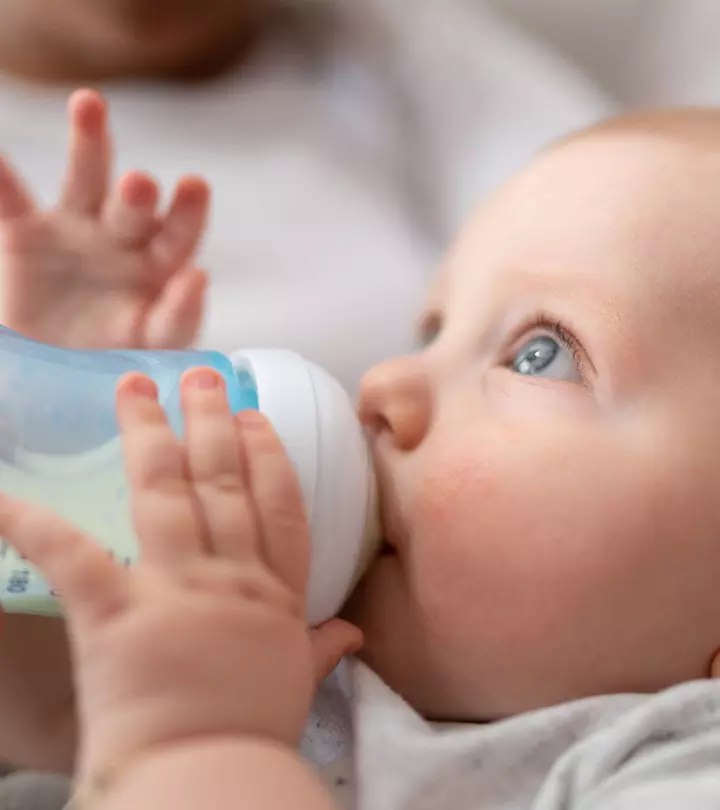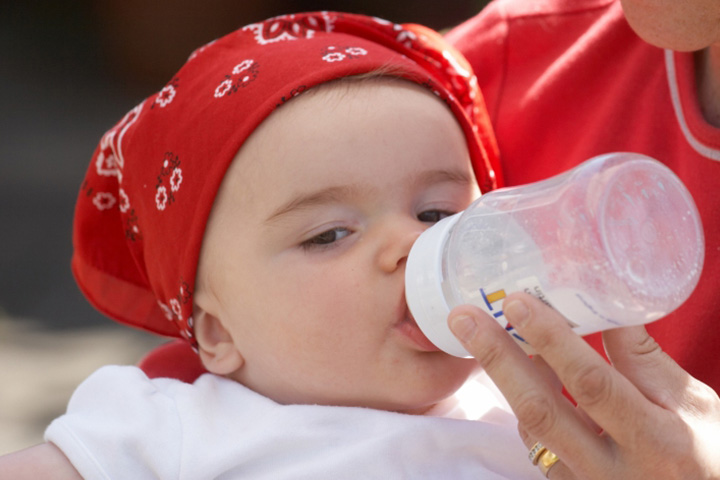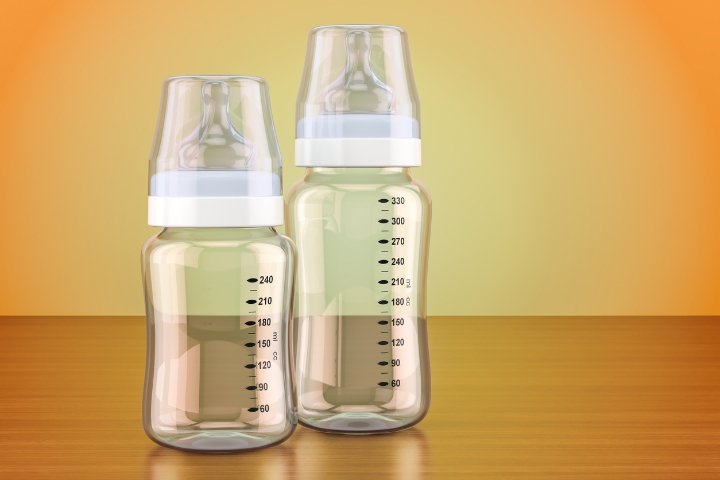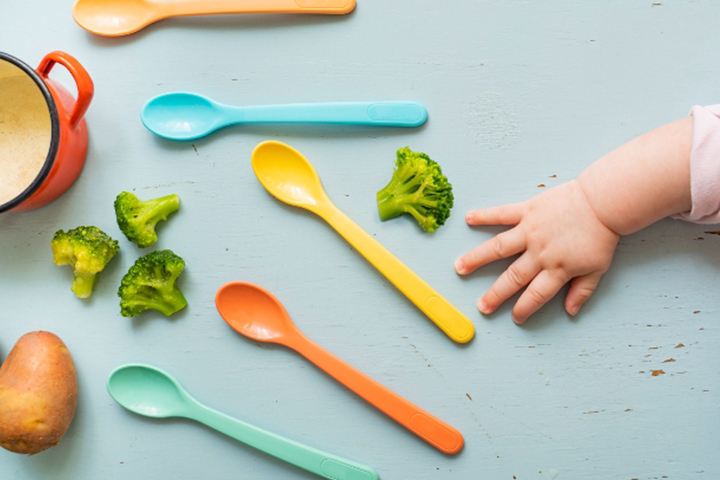
Image: iStock
Regardless of whether you are exclusively breastfeeding your baby or providing them with formula, almost every parent of a newborn keeps baby bottles on hand. The reason is quite clear – bottle-feeding your baby is undeniably convenient and accessible. Even mothers who primarily breastfeed their infants often choose to pump and store their breast milk for bottle-feeding occasions, particularly when they are on the go or if they want their partners to take the night shift, allowing them to get some much-needed rest. Of course, these bottles are used even more frequently if you’ve opted to feed your baby with formula. Given these considerations, it’s no surprise that the World Health Organization reports that at least 87% of infants over 4 months old in the United States are bottle-fed at some point (1). While these bottles are exceedingly popular, it’s crucial for parents to exercise caution and avoid potentially harmful types. This is why plastic bottles may not be the most suitable choice for your baby. Keep reading to learn more!
1. Plastic Bottles Add Microplastics To Baby Formula
Regrettably, baby bottles may not be as secure as once believed. Startlingly, research reveals that infants fed with plastic bottles can ingest up to 16 million plastic particles per liter (2). It’s a rather astonishing fact! But how does this come about? These microplastics are typically released during the sterilization of bottles and the preparation of formula. The higher the temperature, the greater the release of microplastics. Now, what exactly are microplastics? Microplastics are tiny fragments of plastic, each measuring less than 5 millimeters (3). They result from the continual breakdown of plastic items into smaller pieces. The consumption of these materials can pose potential risks to your precious infant.
2. They Intoxicate Little Babies With Harmful Chemicals
What many parents may not be aware of is that a number of plastic bottles contain a chemical known as bisphenol A (BPA). This substance, when ingested, can mimic hormones and potentially disrupt the normal functioning of our hormonal systems, which is not beneficial for your baby’s developing physiology. Research has even indicated that in the bodies of animals, BPA has adverse effects on reproductive, developmental, and metabolic processes (4). Although the full extent of this chemical’s impact on humans is still under comprehensive study, one thing we can be certain of is its harmfulness to children and infants. Therefore, when you’re in the market for a baby bottle, ensure that it is constructed from BPA-free materials.
3. Scratches On The Inside Of The Bottle Can Serve As A Home For Bacteria
Image: IStock
The other drawback of plastic bottles is that they can get scratched pretty easily which creates a space for growth and unpleasant odors. And although we can fully sanitize these plastic bottles, plastic can melt and in turn release harmful substances which makes it even more difficult to clean and keep them in safe, usable condition for your baby. This is why it is imperative that plastic bottles are replaced every 3 to 6 months, as, after this period, bottles are even less safe than before.
4. Alternatives That Can Be Used Safely
Image: IStock
If you’re seeking safe alternatives, here are some options to consider. It’s important to bear in mind that the full impact of plastic on children has not been comprehensively researched. This is why experts recommend minimizing exposure during their early years. The simplest approach is to utilize glass bottles, as they are both safe and easy to maintain in a hygienic condition. However, if you’re concerned about the fragility of glass bottles and aren’t quite ready to completely eliminate plastic bottles from your routine, you can opt to prepare formula in a non-plastic container. Once it has cooled a bit, you can then transfer it to your baby’s preferred feeding bottle. This way, you can reduce the quantity of particles your baby might ingest. Another valuable tip when selecting baby bottles is to opt for those clearly marked as “BPA-free.” Since BPA can also be present in plastic formula containers, consider purchasing formula packaged in sturdy metal cans.
Here Are Some Other Baby Products That Can Be Harmful
Image: IStock
Yup that’s right, it’s not just bottles that pose a risk to your little one. Cutlery for children and teethers for babies are just some of the other items that release harmful participles when sterilized. Be aware of plastic childcare products and search for healthier alternatives.
Taking care of your baby is no easy task. As soon as you’ve ruled out every obvious sign of danger something like a plastic bottle can sneak up on you and cause unnecessary harm to your baby. This is why it’s important to stay informed and avoid the use of plastic as much as possible. Happy parenting!















